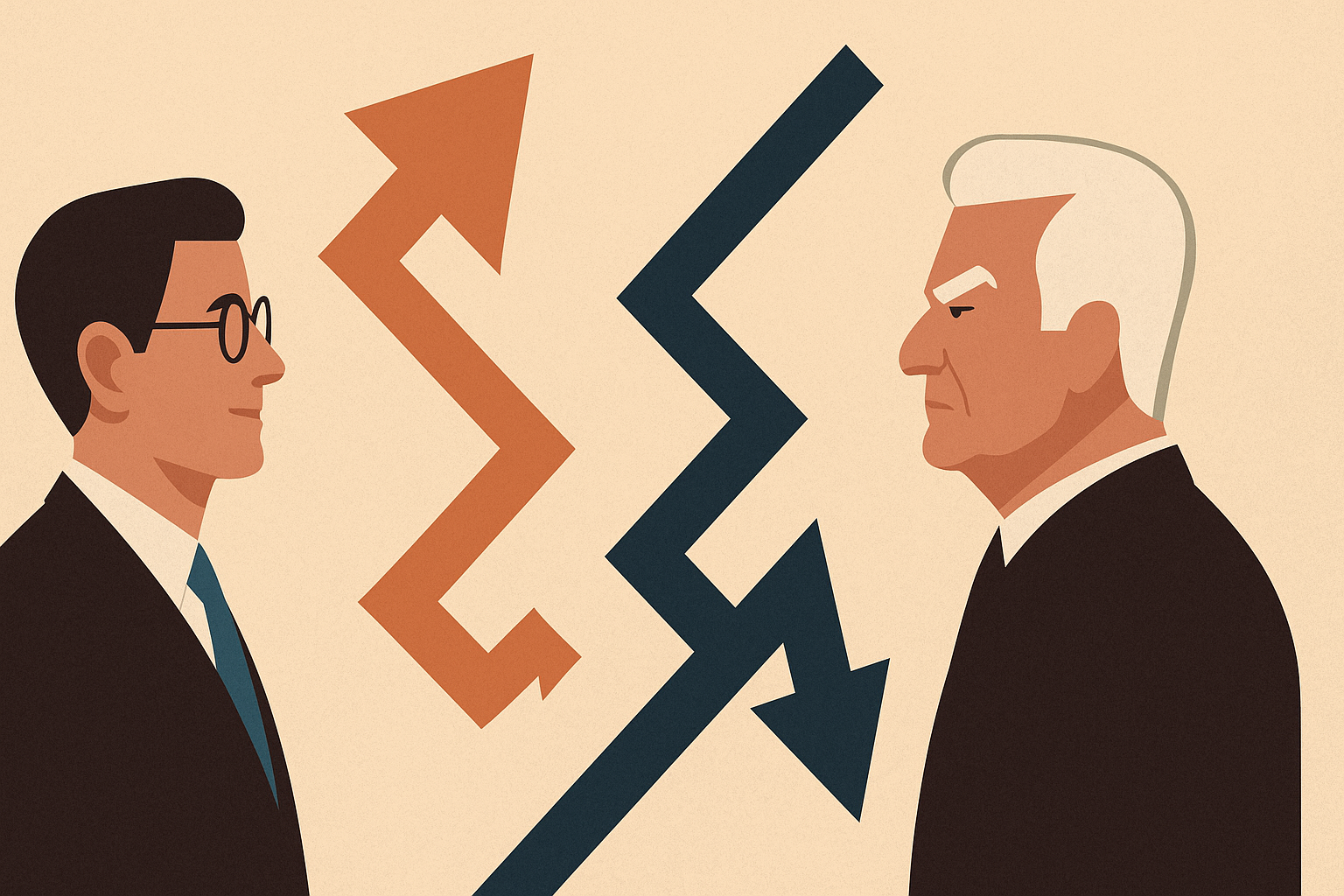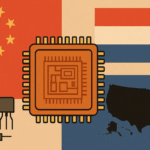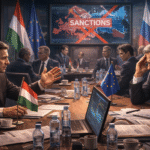The Netherlands is witnessing a political rebalancing. In the latest parliamentary elections, centrist and liberal parties have made significant gains, signaling renewed support for moderation after a turbulent experiment with far-right governance. Yet, despite the resurgence of the center, the far right remains a powerful and deeply rooted force in Dutch politics.
Centrists Reclaim Momentum
Rob Jetten and his pro-EU liberal party D66 achieved a dramatic comeback, tripling their seats to 26 — equaling the tally of Geert Wilders’ far-right Freedom Party (PVV). Jetten’s message of optimism, compromise, and unity — “When all positive forces unite, we will put an end to the Wilders era” — resonated with voters weary of political gridlock.
The Christian Democrats also staged a notable recovery, contributing to what analysts describe as a “punishment beating” for the outgoing coalition, which was marred by infighting and legislative paralysis. All four parties that formed the previous government lost seats, including Wilders’ PVV, which shed about a third of its 2023 gains.
Wilders’ Setback and the Resilient Far Right
Although weakened, the far right remains a formidable presence. Wilders’ political troubles stem from his own coalition’s collapse earlier this year, triggered by disputes over immigration policy — an issue he championed but failed to deliver on as his party led the asylum and migration ministry.
His losses benefited other right-wing rivals. The conservative-liberal VVD gained support, as did smaller far-right factions like the pro-Russian Forum for Democracy and its splinter group JA21, which gained four and eight seats respectively. JA21, while sharing PVV’s anti-immigration stance, portrays itself as more pragmatic and open to cooperation with mainstream parties.
Experts caution against interpreting the election as a defeat for the radical right. “The narrative should really not be that the Netherlands has beaten the radical right,” said Sarah de Lange, professor of Dutch politics at Leiden University. Léonie de Jonge, a far-right specialist at the University of Tübingen, echoed that view: “Support hasn’t disappeared; it’s shifted across parties.”
Extreme Fragmentation Challenges Governance
The Netherlands’ highly proportional electoral system — with one of Europe’s lowest thresholds for parliamentary entry — has made political fragmentation the norm. This election deepened that trend. Never before have the top two parties won so few seats, or so many parties gained representation with fewer than five.
As a result, any new government will likely require at least four parties to secure a majority, complicating coalition talks and potentially delaying government formation by months.
If the PVV ultimately wins the popular vote once overseas ballots are counted, Wilders will claim the first right to attempt coalition talks. Yet, most mainstream parties refuse to work with him, likely handing the initiative to Jetten.
The Road Ahead: Negotiation and European Engagement
Jetten’s most viable path is a centrist coalition of D66, the Christian Democrats, the VVD, and the Green-Labour alliance — a combination that would hold majorities in both parliamentary chambers. However, VVD leader Dilan Yeşilgöz has ruled out working with left-wing parties, favoring an alliance with JA21 instead. That option would fall short of a majority and clash ideologically with Jetten’s liberal, pro-EU stance.
Still, the weakened Green-Labour bloc and the resignation of its leader Frans Timmermans may open the door for compromise. A successful centrist coalition would mark a return to stable governance and a more constructive European outlook after years of polarisation.
Jetten, a former energy minister, campaigned openly on pro-EU values, arguing that the Netherlands should “say yes to Europe’s initiatives, not always no.” A cooperative government in The Hague could strengthen the EU’s hand as it faces challenges including enlargement, budget reforms, and long-term support for Ukraine.
Wilders Returns to the Opposition Arena
Geert Wilders appears destined to return to opposition — a role that suits his combative, anti-establishment persona. Analysts note that while Wilders craves influence, he struggles with the compromises of governance. His PVV remains a personal vehicle with no real party infrastructure, members, or policy machinery.
“Wilders is more comfortable in opposition, where responsibility is lighter,” observed historian Koen Vossen. Yet even from the sidelines, his influence endures. By relentlessly steering political discourse toward immigration and nationalism, he continues to shape Dutch politics — forcing even centrist parties to harden their tone.
As columnist Simon Kuper noted, “By shouting at the Dutch system, Wilders moves it rightwards.”








